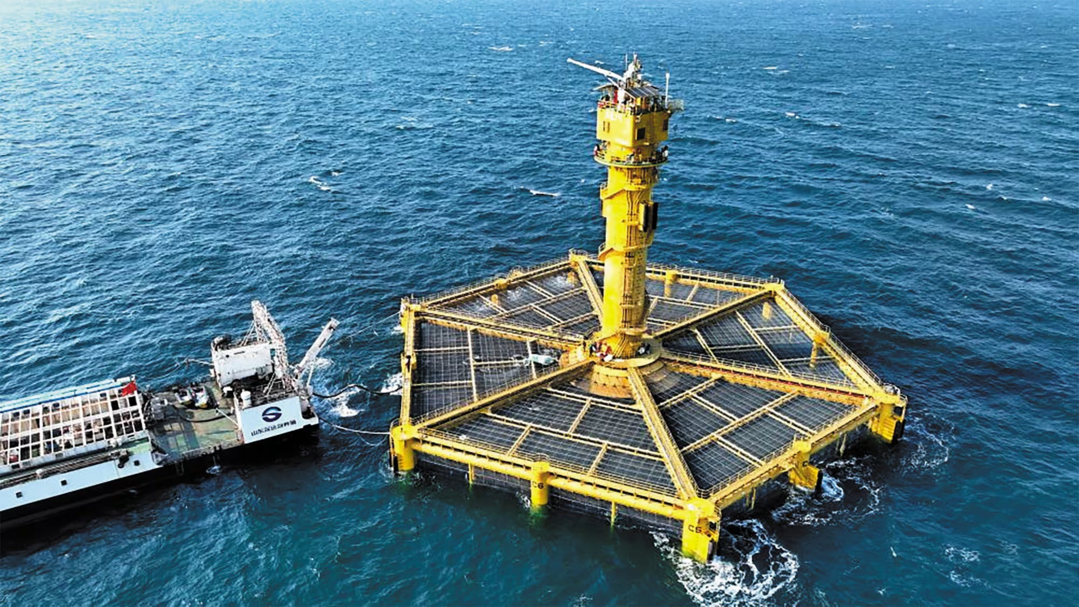
Recent discussions on maritime cooperation between South Korea and China have taken a contentious turn, with Beijing challenging Seoul's established presence at the Ieodo Ocean Research Station. During the dialogue, Chinese representatives reportedly asserted that the South Korean scientific outpost lies within China's Exclusive Economic Zone (EEZ), a claim swiftly refuted by Seoul as a diversionary tactic.
This diplomatic friction arose in the wake of South Korean protests against China's unilateral construction of fixed structures within the Provisional Measures Zone (PMZ). The PMZ, a maritime area intended for joint management by both nations under the 2001 South Korea-China Fisheries Agreement, has become a point of contention due to China's assertive actions. In what analysts interpret as an attempt to deflect from its activities within the PMZ, China has now targeted Ieodo, a submerged reef located outside this jointly managed area.
South Korea has firmly asserted its sovereign rights over Ieodo, citing geographical proximity and international legal principles. The distance from Ieodo to South Korea's inhabited island of Marado is a mere 149 kilometers, significantly closer than the 247 kilometers separating Ieodo from the nearest Chinese uninhabited landmass. Furthermore, under the widely recognized "median line" principle, which dictates that maritime boundaries between nations with overlapping EEZs should be drawn at the equidistant midpoint from their respective coastlines, Ieodo unequivocally falls under South Korean jurisdiction. This geographical reality underpinned South Korea's decision to commence the construction of the Ieodo Ocean Research Station in 1995, six years prior to the signing of the fisheries agreement.
For years, China has employed a strategy of prolonging maritime boundary demarcation negotiations, advocating for the inclusion of factors such as hinterland population and coastline length in the calculation of EEZ boundaries. This stance, perceived by many in South Korea as unreasonable, suggests that China believes its larger landmass and population should proportionally grant it greater control over the West Sea (Yellow Sea). Observers speculate that Beijing anticipates its growing national power will eventually lend credence to these claims. The increasing construction of structures by China in waters near South Korea's claimed EEZ is also viewed as a calculated move to gradually assert its presence and challenge the existing maritime order.
In a swift response to China's recent assertions, the National Assembly's Agriculture, Food, Rural Affairs, Oceans and Fisheries Committee in Seoul has approved a budget of 60.5 billion won (approximately $44 million USD) aimed at bolstering South Korea's maritime presence and countering China's actions. The allocated funds include 60 billion won for the installation of South Korean structures in the contested waters and 500 million won for crucial research initiatives. There is a strong emphasis within the South Korean government and legislature to ensure this budget clears the plenary session without any reductions, underscoring the seriousness with which Seoul views the escalating maritime tensions.
Furthermore, there is a growing call within South Korea to consider a significant expansion and renovation of the existing Ieodo Ocean Research Station. Proponents argue that a robust and proportional response is essential to deter further Chinese encroachment and prevent Beijing from underestimating Seoul's resolve. Failure to act decisively now, they warn, could embolden China to escalate its "West Sea Project," a perceived long-term strategy to assert greater control over the Yellow Sea.
The unfolding situation highlights the delicate and increasingly strained maritime relationship between South Korea and China. As China continues to assert its regional influence, South Korea faces the critical challenge of safeguarding its maritime rights and interests in the face of growing pressure. The future of the West Sea and the status of Ieodo remain key focal points in this evolving geopolitical dynamic.
[Copyright (c) Global Economic Times. All Rights Reserved.]



























